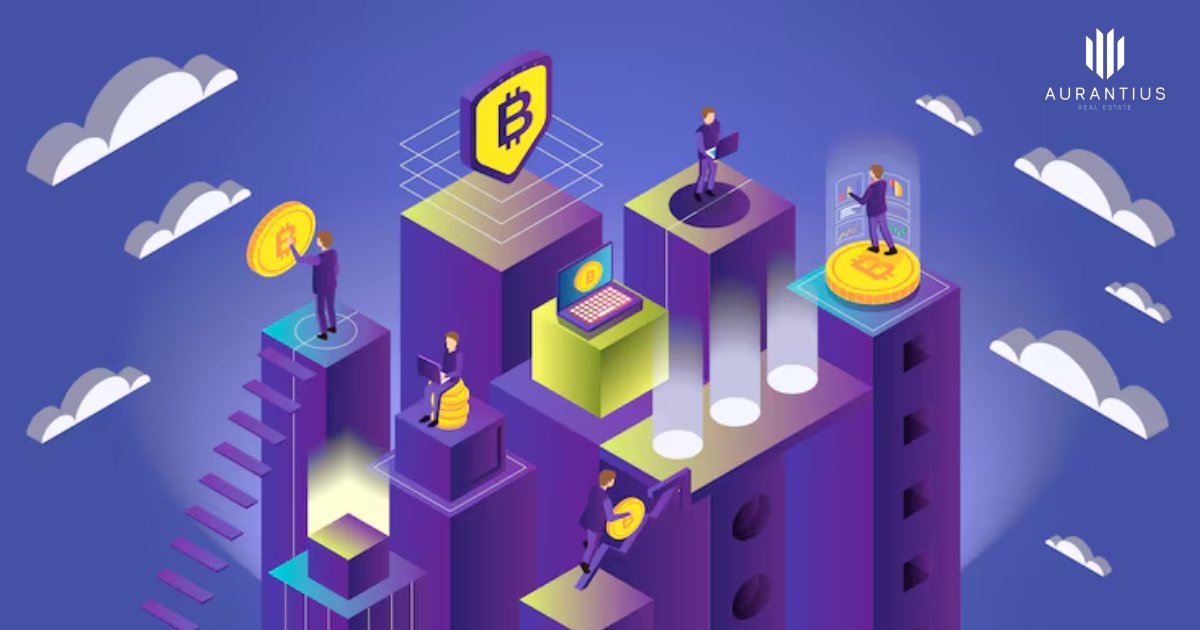Dubai Blockchain Shift: Will Crypto Disrupt or Strengthen the Real Estate Market?
Dubai is once again at the forefront of global innovation with a bold new step. The Dubai Land Department (DLD) has signed a cooperation agreement with Crypto.com to integrate blockchain and digital currencies directly into real estate. This move could completely reshape how properties are bought, sold, and invested in across the city, further aligning with Dubai’s push to position itself as a global hub for smart investments and financial innovation.
What the Agreement Covers
Signed in July 2025, the agreement outlines several initiatives:
- Developing blockchain infrastructure for secure real estate investments
- Introducing tokenisation to allow fractional ownership of properties
- Enabling cryptocurrency settlements for property transactions
- Creating compliance and advisory frameworks to ensure secure adoption
Under this model, DLD will oversee regulation, while Crypto.com will handle technical integration. This aligns closely with Dubai’s Real Estate Strategy 2033, which targets AED 1 trillion in property transactions by positioning the emirate as a leading innovation-driven real estate hub.
Why This Matters for Dubai
Dubai has already built its reputation as a forward-thinking global hub, introducing Downtown Dubai as a global showcase for investment and Emaar as a symbol of large-scale developer leadership. Blockchain real estate could extend that reputation further by:
- Cutting fraud through verified blockchain ledgers
- Speeding up property transactions with smart contracts
- Reducing entry barriers via fractional ownership
- Attracting more global investors with digital-first solutions
This makes the market more inclusive, opening investment opportunities for both high-net-worth individuals and smaller retail investors worldwide.
The Challenges Ahead
While the move is groundbreaking, there are serious hurdles to address:
1. Regulation: Investor protections, smart contract governance, and taxation on crypto-based property transactions remain unclear. Without clarity, risks could outweigh opportunities.
2. Currency Volatility: Cryptocurrencies like Bitcoin and Ethereum fluctuate significantly. Real estate pegged to volatile assets could destabilize deals unless stablecoins or central bank digital currencies are used.
3. Industry Readiness: Many brokers and developers still lack the digital literacy required for blockchain real estate. Education, training, and adoption will be crucial for meaningful impact.
What It Means for Brokers, Developers, and Investors
Brokers will need to become fluent in blockchain, wallets, and tokenised investment structures. Developers, including heavyweights like DAMAC, Ellington, and Nakheel, can leverage tokenisation to access global buyers and new capital sources. Investors now have the opportunity to gain exposure to Dubai’s prime assets—such as Palm Jumeirah or Dubai Marina—without needing to purchase entire units outright.
Tokenisation: Revolution or Just Hype?
Tokenisation has the potential to democratize access to high-value assets by breaking them into smaller shares. However, liquidity, valuation transparency, and regulatory oversight will be key to its success. Without credible secondary markets or clear investor protections, tokenisation risks being seen as hype rather than innovation.
Final Thoughts
The DLD–Crypto.com agreement is more than just a tech collaboration; it’s a bold step to future-proof Dubai’s property market. If executed properly—with clear regulations, stable transaction frameworks, and education for stakeholders—it could position Dubai as the global benchmark for blockchain real estate. If not, it may be remembered as another ambitious digital experiment. For now, investors and developers should watch closely as Dubai blends blockchain with its real estate DNA.
Looking to explore more about Dubai’s evolving real estate opportunities? Visit our homepage or browse investment options across Business Bay, JVC, and Dubai Hills Estate.










